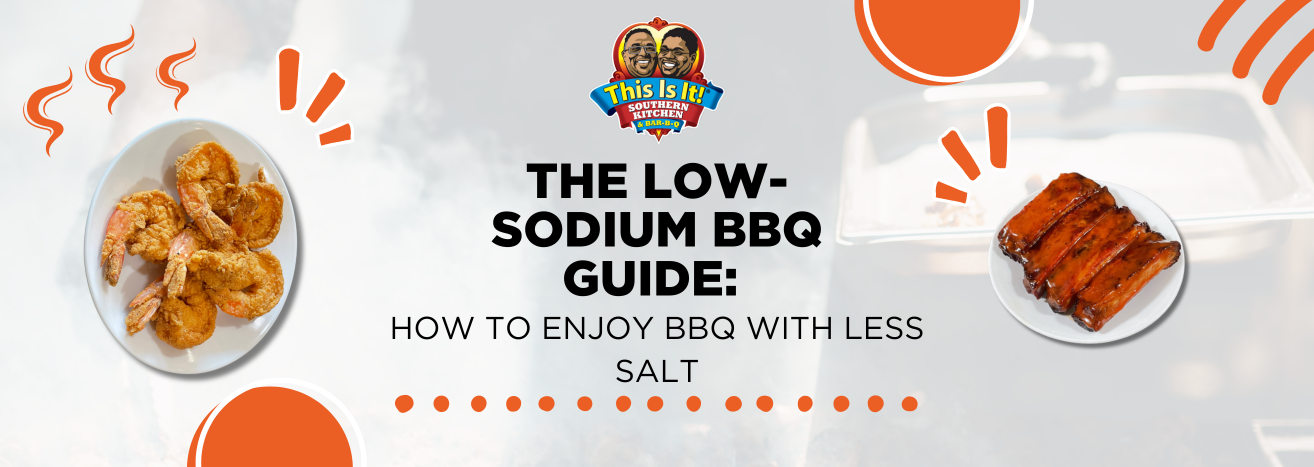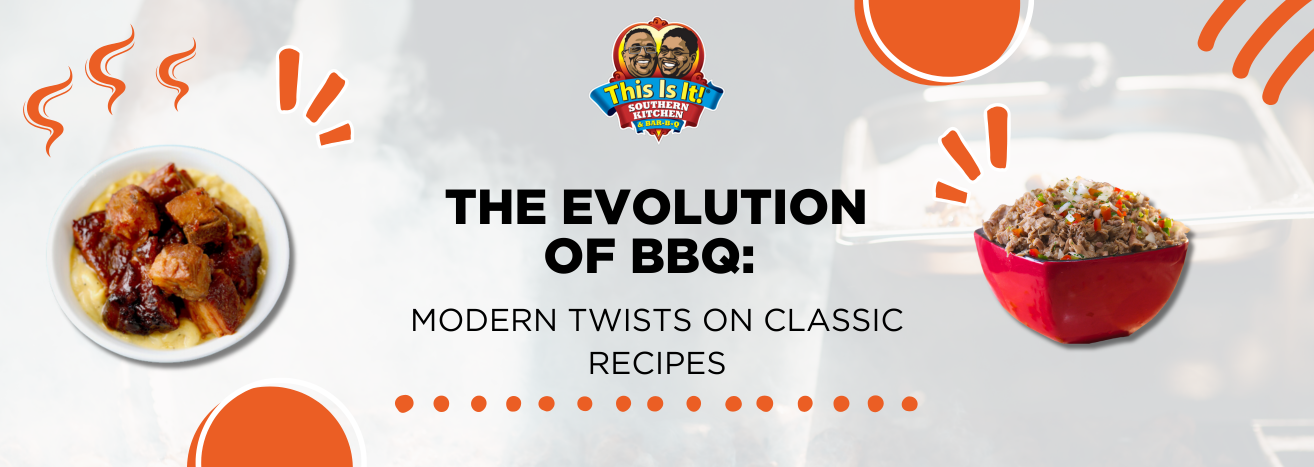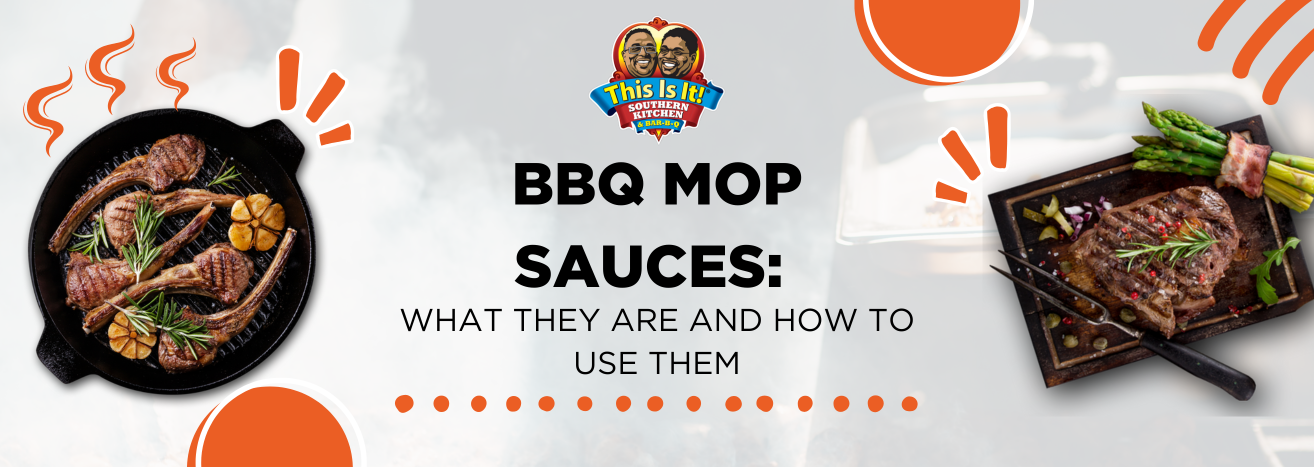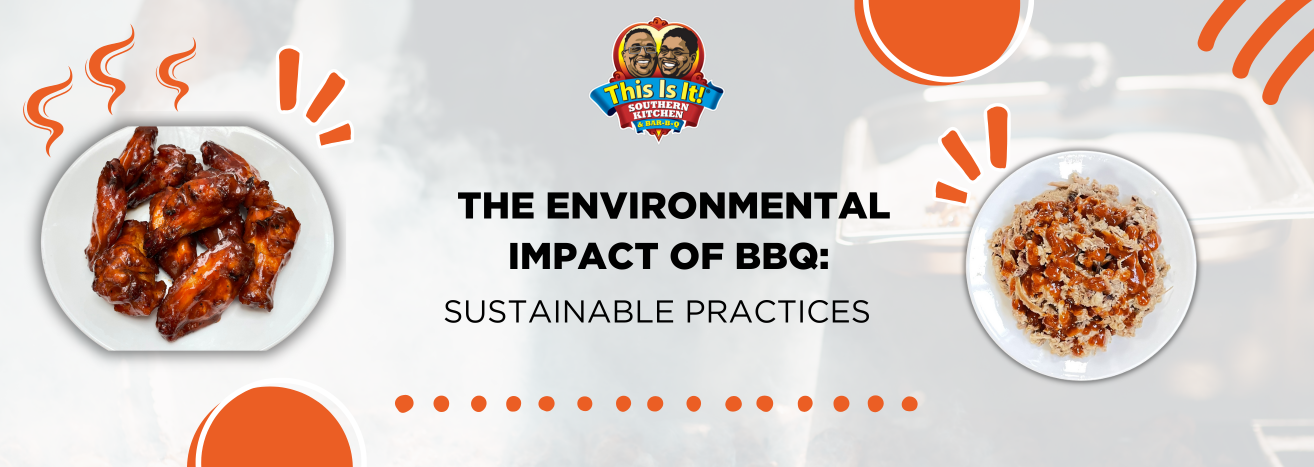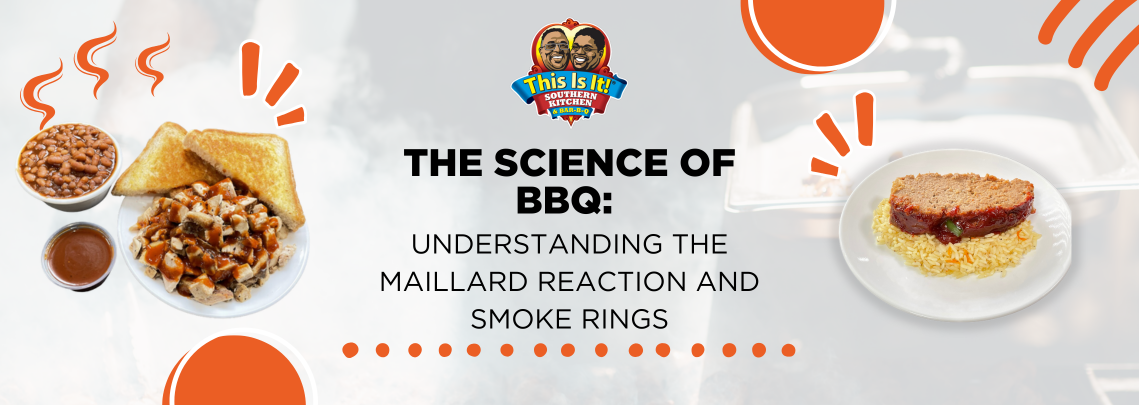BBQ Rubs: Store-Bought vs. Homemade
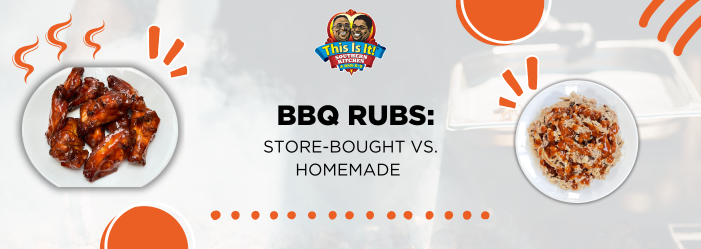
Table of Contents: BBQ Rubs: Store-Bought vs. Homemade
- Introduction
- The Importance of BBQ Rubs
- Store-Bought vs. Homemade Debate
2. What Is a BBQ Rub?
- Definition
- Types of Rubs: Dry Rubs vs. Wet Rubs
3. Store-Bought BBQ Rubs
- Advantages
- Convenience
- Consistency
- Variety
- Expert Formulations
- Drawbacks
- Cost
- Hidden Ingredients
- Limited Customization
4. Homemade BBQ Rubs
- Advantages
- Customizability
- Fresh Ingredients
- Cost-Effective
- Healthier Option
- Creative Freedom
- Drawbacks
- Time-Consuming
- Inconsistent Results
- Ingredient Availability
5. Key Factors to Consider
- Your Skill Level
- Time
- Occasion
- Flavor Preferences
- Cost
6. Popular Store-Bought BBQ Rubs
- Killer Hogs BBQ Rub
- Meat Church Holy Gospel
- Traeger Grills Pork & Poultry Rub
- Slap Yo’ Daddy BBQ Rub
7. Easy Homemade BBQ Rub Recipe
- Ingredients
- Instructions
8. Tips for Applying BBQ Rubs
- Pat the Meat Dry
- Apply Generously
- Let It Sit
- Balance Your Wood Choice
9. The Verdict
- Store-Bought vs. Homemade: Final Thoughts
10. Final Thoughts
- Elevating Your BBQ Game
- Experimentation and Enjoyment
When it comes to creating the perfect BBQ, flavor is king. While the meat itself is crucial, the rub you choose can make or break your dish. BBQ rubs are a mix of spices, herbs, and seasonings that enhance the flavor of the meat, whether it’s pork ribs, brisket, chicken, or seafood. But which is better: a store-bought rub or a homemade blend?
This debate has raged in BBQ circles for years. Both options have their merits and drawbacks, and the choice often depends on your personal preferences, time, and cooking goals. In this blog, we’ll dive deep into the world of BBQ rubs, exploring the pros and cons of store-bought and homemade options to help you decide which one suits your next cookout.
What Is a BBQ Rub?
Before diving into the comparison, let’s define what a BBQ rub is. A BBQ rub is a blend of seasonings applied to meat before cooking. Rubs can be:
Dry Rubs: A powdery mix of spices and herbs.
Wet Rubs: Dry rubs mixed with liquids like oil or vinegar to create a paste.
Rubs help to create a flavorful crust or bark on the meat, locking in juices and enhancing the overall taste.
Store-Bought BBQ Rubs
Advantages
Convenience
Store-bought rubs are perfect for those short on time. With pre-mixed spices, all you have to do is open the container and apply. They’re especially useful for last-minute BBQs or when you don’t want to experiment with creating your own blend.
Consistency
Manufacturers invest time and money in testing recipes to ensure their rubs deliver the same flavor every time. If you love a particular brand, you can trust it to taste the same with each use.
Variety
The market is saturated with options catering to every palate—whether you want sweet, spicy, smoky, or tangy. You can even find regional flavors like Kansas City-style, Texas-style, or Carolina rubs.
Expert Formulations
Many store-bought rubs are crafted by professional pitmasters, ensuring high-quality ingredients and well-balanced flavors.
Drawbacks
Cost
Store-bought rubs can be pricey, especially if you BBQ often or need large quantities.
Hidden Ingredients
Some rubs contain preservatives, artificial flavors, or excess salt, which might not align with a health-conscious or natural lifestyle.
Limited Customization
You’re stuck with the flavor profile the manufacturer provides, making it harder to tweak the rub to your specific taste preferences.
Homemade BBQ Rubs
Advantages
Customizability
The biggest advantage of homemade rubs is the ability to tailor them to your taste. Love heat? Add extra cayenne. Prefer sweetness? Mix in more brown sugar. The options are endless.
Fresh Ingredients
Making your rub at home ensures you’re using the freshest spices, resulting in a more vibrant flavor.
Cost-Effective
Buying spices in bulk and mixing your rubs at home can save you money in the long run, especially if you BBQ frequently.
Healthier Option
When you control the ingredients, you avoid preservatives, MSG, and excess sodium often found in store-bought blends.
Creative Freedom
Crafting your own rub allows you to experiment with unconventional spices, like cinnamon, coffee grounds, or smoked paprika, to create signature blends.
Drawbacks
Time-Consuming
Mixing your own rub takes time, especially if you’re experimenting with ratios or trying to perfect a recipe.
Inconsistent Results
Without a tried-and-tested recipe, your rub might not turn out as planned, leading to unpredictable flavors.
Ingredient Availability
Some specialty spices may not be readily available at your local grocery store, forcing you to hunt them down or settle for substitutes.

Key Factors to Consider When Choosing Between Store-Bought and Homemade Rubs
1. Your Skill Level
If you’re new to BBQing, starting with a store-bought rub might be the easiest option. As you gain experience, experimenting with homemade blends can add a personal touch to your BBQ.
2. Time
Tight schedule? A store-bought rub saves time. Have a leisurely weekend planned? Whipping up a homemade rub can be a rewarding experience.
3. Occasion
For casual family dinners, a store-bought rub might suffice. For a special event or competition, a homemade rub can help you stand out and show off your creativity.
4. Flavor Preferences
If you have specific flavor preferences or dietary restrictions, a homemade rub allows you to control every aspect of the blend.
5. Cost
For frequent BBQers, homemade rubs are more cost-effective in the long run. If you’re an occasional griller, investing in a high-quality store-bought rub might be a better option.
Popular Store-Bought BBQ Rubs
If you’re leaning toward store-bought rubs, here are some top-rated options to consider:
Killer Hogs BBQ Rub – Perfect for sweet and savory BBQ.
Meat Church Holy Gospel – A versatile rub for all types of meat.
Traeger Grills Pork & Poultry Rub – Ideal for chicken and pork.
Slap Yo’ Daddy BBQ Rub – A competition favorite with balanced flavors.
Easy Homemade BBQ Rub Recipe
Here’s a simple, all-purpose BBQ rub to get you started:
Ingredients:
1/4 cup brown sugar
2 tbsp paprika (smoked or regular)
1 tbsp garlic powder
1 tbsp onion powder
1 tbsp kosher salt
1 tsp black pepper
1 tsp cayenne pepper (optional for heat)
1 tsp mustard powder
Instructions:
Combine all ingredients in a bowl.
Mix thoroughly to ensure even distribution.
Store in an airtight container for up to 6 months.
This rub works well on pork, chicken, and even roasted vegetables!

Tips for Applying BBQ Rubs
- Pat the Meat Dry: Remove excess moisture before applying the rub to ensure it adheres properly.
- Apply Generously: Don’t be shy—coat the meat thoroughly for maximum flavor.
- Let It Sit: Allow the rub to sit on the meat for at least 30 minutes before cooking, or refrigerate overnight for deeper penetration.
- Balance Your Wood Choice: Pair your rub’s flavor profile with the right wood. For example, sweet rubs go well with fruitwoods like apple or cherry.
The Verdict
There’s no definitive winner in the store-bought vs. homemade BBQ rub debate—it ultimately depends on your preferences, time, and goals. Store-bought rubs offer convenience and consistency, while homemade rubs provide flexibility and a personal touch. The best approach? Try both and see what works best for your BBQ style.
Whether you choose a store-bought favorite or craft your own masterpiece, the key to great BBQ lies in experimenting and enjoying the process. After all, the journey to the perfect bite is half the fun.
Final Thoughts
BBQ rubs are a vital component of any successful cookout. Whether you’re a novice griller or a seasoned pitmaster, understanding the pros and cons of store-bought and homemade rubs will elevate your BBQ game. So grab your spices, fire up the smoker, and let the flavors shine!
For more BBQ tips and recipes, visit This Is It! Southern Kitchen & Bar-B-Q. Let’s get grilling!
